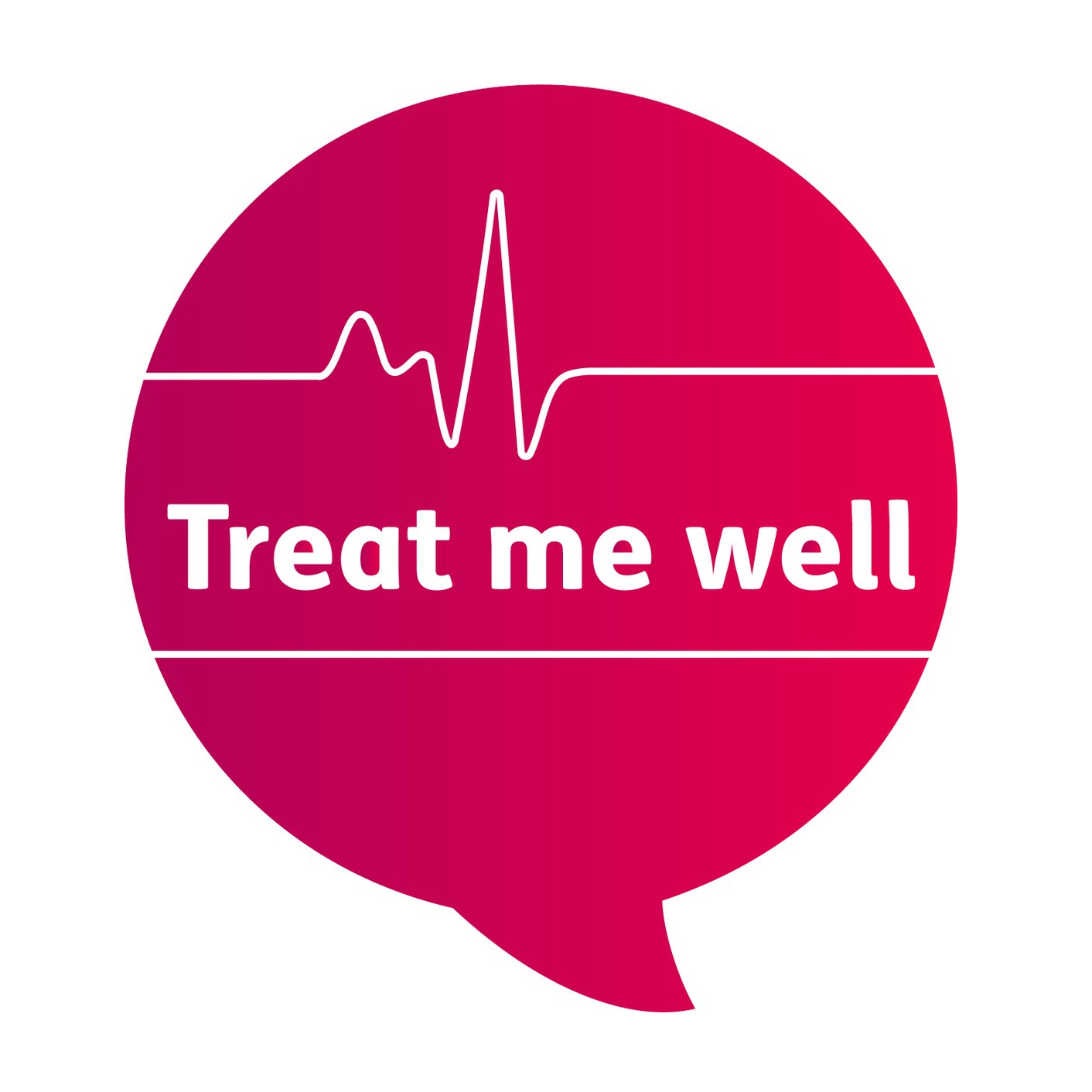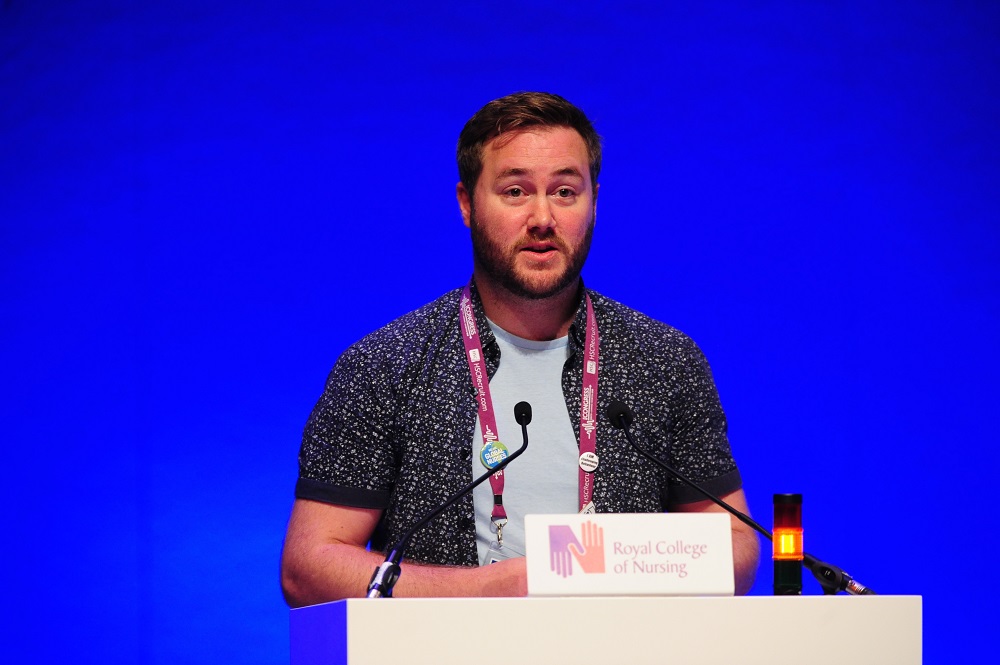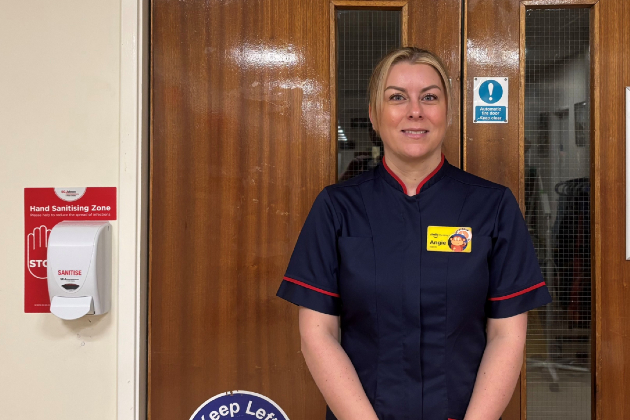If someone with a learning disability is admitted to hospital banging their head, being silent or laughing, do you assume that’s part of their behaviour? Or might it signal they are in pain or distress?
For consultant nurse Jim Blair, far too many health care staff attribute behaviours to a learning disability, rather than looking at the reasons behind them. “Staff need to understand that all they see, isn’t all there is,” he says. “We need to tune in to that individual and look beyond what they say or don’t say. If we were to do that we would enhance and save lives. If we don’t, we’ll continue to have people with learning disabilities dying avoidably.”
We need to tune into that individual
In May, the NHS Learning Disabilities Mortality Review published its latest report into 103 deaths in 2016-17. This found that in 13 instances the person’s health had been adversely affected by treatment delays, poor care, neglect or abuse.
Overall, they found the life expectancy of someone with a learning disability lagged way behind a person in the general population – almost 23 years for men and more than 29 years for women. The review was set up in 2015, in response to concerns over repeated failings in the care of patients with learning disabilities.
In a bid to increase awareness of the issues, Jim proposed a matter for discussion at RCN Congress, which looks at diagnostic overshadowing and the role that nurses can play in addressing this, especially for people with learning disabilities.
Diagnostic overshadowing happens when symptoms of physical ill health are wrongly ascribed to someone’s mental health, behaviour or learning disability. Researchers have highlighted that it’s particularly pertinent when new behaviours develop or existing ones increase.
 Jim Blair
Jim Blair
“Everyone experiences pain in different ways,” says Jim. “For instance, someone may show it by laughing - but it’s the intonation that tells us that’s not their normal laugh and something else is happening. As nurses, we need to work out whether there is a health problem and then take action, without delay. That one small step alone would save lives.”
Generally speaking, people with learning disabilities have much greater risks of experiencing a variety of diseases or conditions. For example, gastrointestinal cancers are approximately twice as prevalent in those with a learning disability, with approximately 70 per cent experiencing gastrointestinal disorders. The leading cause of death for those with a learning disability is respiratory disease, followed by coronary heart disease.
The prevalence of mental health problems is also considerably higher for those with learning disabilities than the general population, with estimates suggesting between 30 and 50 per cent for adults. Some specific mental health conditions are more common in those with learning disabilities, compared to the general population, including schizophrenia, which is thought to be three times higher.
Recognising that small changes can make a big difference to health care outcomes, the charity Mencap has launched a campaign to transform how the NHS treats people with a learning disability. Focused on practical changes, Treat me Well suggests a range of adjustments to help people with learning disabilities get equal access to health care. These include using simpler language or communication aids; allowing extra time for appointments; and providing patients with information in an accessible, easy read format. They are also calling for compulsory learning disability training for all hospital staff, alongside resources, such as time to attend training.
The RCN matter for discussion takes place against a background of continuing decline in the numbers of registered learning disability nurses. According to the Nursing and Midwifery Council (NMC) Register, there are currently 17,174 learning disability nurses in the UK - a four-year decrease from 18,933 in 2014. Meanwhile London South Bank is the most recent university to admit it is struggling to recruit enough students for its learning disability nursing course and is considering shutting it. Earlier this year, the University of Hertfordshire suspended recruitment to undergraduate learning disability nursing courses at two centres, citing a continuing year-on-year decline in applicants.
For Jim, it’s imperative that nursing staff lead the way. “If you accept poor care, then you are enabling health inequalities to thrive and early avoidable deaths to happen,” he says. “Nurses need to be catalysts for change, or they are complicit. The only way is to get up and speak about it. The question you have to ask is, if it was any other group in society dying at the rate of three a day in hospitals avoidably, would society be up in arms about it? Not acting is to say that’s okay.”
Anne’s story
Anne has a learning disability and mental health issues. In her story, which features in Mencap’s Treat me Well campaign report, she shares two very different experiences in hospital - the first where reasonable adjustments were made; the second where they were not.

“I have been to hospital lots of times and had good and bad experiences. These are my stories of how I was treated on two different visits and what made the difference for me. I had a good experience of going into hospital when having an operation on my knee. The learning disability nurse helped by giving me some easy read information about what would happen. The doctor explained things in a way I could understand and the nurses looked after me. This was a good experience because all the staff communicated well and took the time to help me.
“But in 2016, I had to go to accident and emergency, and the receptionist did not understand my needs. I kept having to repeat myself which made me feel very anxious. I asked if I could wait in a quiet space but there wasn’t anywhere to go. They told me to wait outside if I wanted to have space. The doctors were not very good and gave me information which was different to what the nurses had told me. They changed my medication and did not clearly explain what I needed to do. It was very difficult to understand the words they used, especially the jargon. If they would just take some time to explain things better, I would know what to do.”













